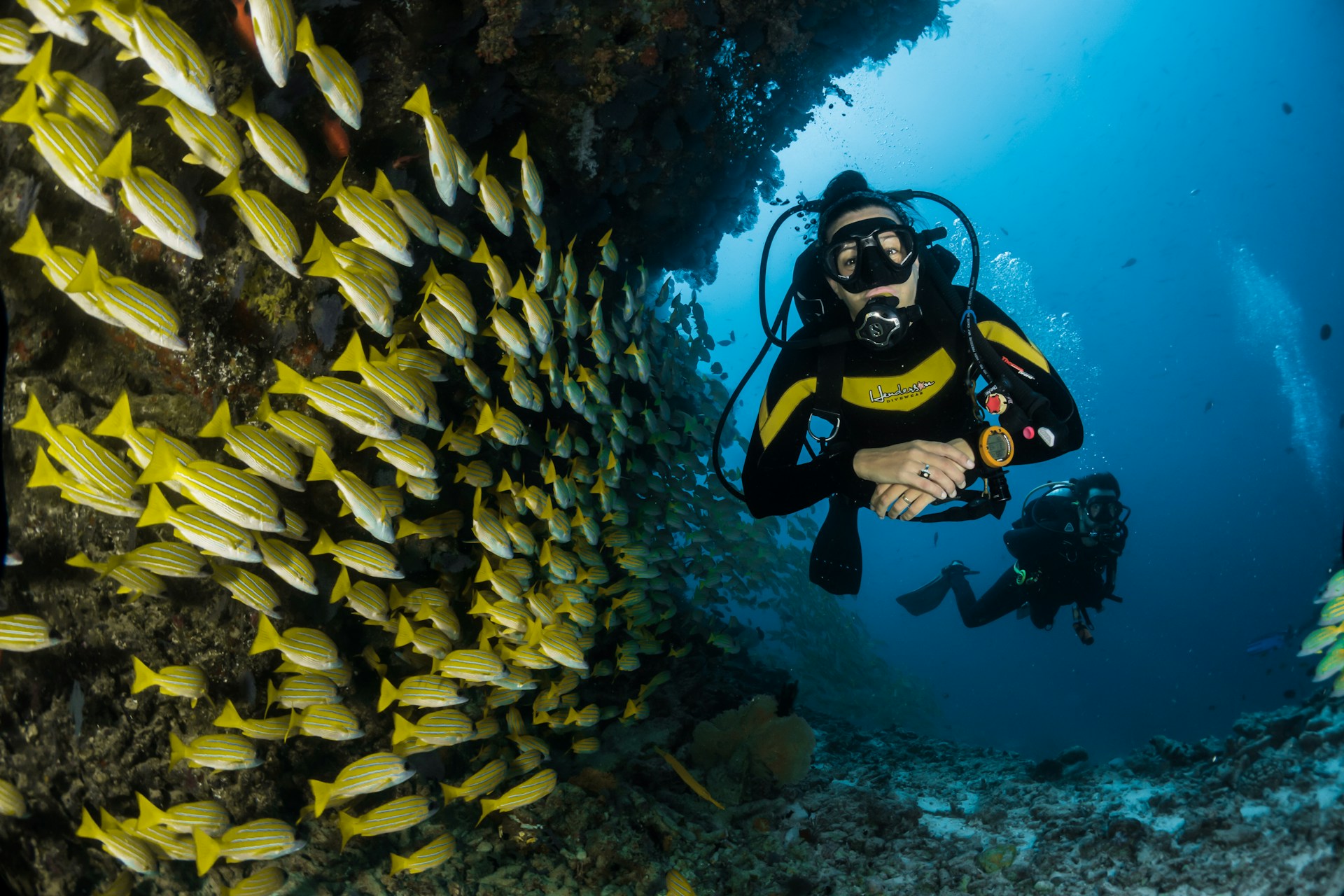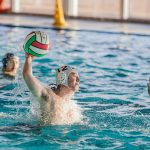Diving is a sport that requires not just physical strength and agility, but also a keen understanding of physics and body mechanics. The difference between a good dive and an excellent one often comes down to fine details. This article will explore the various elements that divers can focus on to optimize their performance, using a combination of training, data analysis, and physiological understanding.
The Importance of the Entry Point
The entry point is the moment where the diver’s body first touches the water. This is a critical point in the dive, as it is the first impression that the judges have of the diver’s performance. A poor entry can lead to large point deductions, even if the rest of the dive is executed perfectly.
Additional reading : What specific yoga poses can benefit athletes in high-intensity sports for flexibility?
The ideal entry is smooth, with minimal splash and the body entering the water in a perfectly straight line. To achieve this, divers must practice their entry repeatedly, focusing on their speed, angle, and body position. The entry point is also influenced by the velocity of the diver’s approach. A fast approach can lead to a powerful dive, but it can also make it more difficult to control the entry. By analyzing their entry data and working with their coaches, divers can find the optimal balance between power and control.
The Role of Underwater Physics
Understanding the physics of water and how it interacts with the human body can greatly enhance a diver’s performance. When a diver enters the water, they create a disturbance in the water, causing a splash. The size and shape of this splash are influenced by the diver’s speed, body position, and entry angle.
Also to see : How can wheelchair rugby players improve their maneuvering skills?
In the underwater environment, a diver’s body behaves differently than it does on land. The water provides resistance, which can slow down the diver and alter their trajectory. By understanding these underwater physics, divers can modify their diving technique to minimize resistance and maintain their speed and direction.
Additionally, a diver’s body form affects their buoyancy and how easily they can move through the water. A streamlined body form reduces drag and allows the diver to move more efficiently. Divers should focus on maintaining a tight body form, with the limbs close to the body and the head in line with the body. This can be practiced in the pool, as well as in dry land training sessions.
The Significance of Air Consumption
Scuba diving is a unique sport in that it requires athletes to breathe air from a tank rather than from the atmosphere. Efficient air consumption is crucial for divers, as running out of air underwater can be dangerous.
Divers should monitor their air consumption constantly and adjust their diving behavior accordingly. To optimize air consumption, divers should strive to maintain a slow, steady breathing pattern. Rapid, shallow breathing can lead to faster air consumption and potentially unsafe situations underwater.
Training can also help divers improve their air consumption. Physical conditioning and breathing exercises can increase lung capacity and improve breath control.
The Impact of Regular Training and Data Analysis
Like any other sport, regular training is crucial for divers to improve their skills and performance. However, in diving, training should not only focus on improving physical strength and agility but also on understanding and mastering the complex mechanics of the dive.
One helpful tool for divers is data analysis. By collecting and analyzing data on their dives, divers can gain insights into their performance and identify areas for improvement. For example, data on entry velocity, angle, and splash size can help divers fine-tune their entry technique.
Moreover, data on air consumption can help divers optimize their breathing technique and manage their air supply more efficiently.
The Contribution of Psychological Preparation
Lastly, psychological preparation plays a pivotal role in a diver’s performance. The mental aspect of the sport can be just as challenging as the physical, with divers needing to overcome fears, stay focused under pressure, and maintain a positive mindset.
Psychological training can help divers manage these mental challenges and perform at their best. This can include techniques such as visualization, mindfulness, and positive self-talk.
In sum, achieving a high scoring dive involves a delicate balance of numerous factors, from mastering the perfect entry to understanding the physics of water, managing air consumption, and harnessing the power of mental preparation. By paying attention to these factors and integrating them into their training, divers can optimize their approach and achieve their best possible performance.
Insights from Google Scholar on Diving Studies
Research is a crucial part of diving training. Just as athletes and coaches analyze performance data, they can also gain valuable insights from scientific studies on diving. One of the best platforms to find such research is Google Scholar.
Google Scholar offers a vast collection of scholarly literature on a wide range of topics, including sport science, physics, and psychology, all of which are relevant to diving. By conducting targeted searches on Google Scholar, divers and coaches can find studies that provide in-depth analyses of the diving process.
For example, research on water entry can help divers understand the physics behind the splash and how to minimize it. Studies on the impact of different entry angles on the splash can also be found, which can guide divers to fine-tune their entry technique.
Research on buoyancy control can provide insights into how divers can optimize their body form to move more efficiently underwater. Studies on the effects of different types of diving equipment can also be found, which can help divers choose the most suitable equipment for their dives.
In addition, Google Scholar provides studies on the psychological aspects of diving, which can be helpful for divers working on their mental preparation. Research on how to manage stress and maintain focus during high-stakes diving competitions can be particularly useful.
By using Google Scholar as a resource, divers can gain access to high-quality research that can help them optimize their performance. This is a long-term strategy that can lead to consistent improvements over time.
Performance Variables and Coaching
Performance variables are aspects of the diving performance that can be measured and analyzed to gauge a diver’s performance. These include factors such as entry velocity, entry angle, splash size, air consumption, and others.
By monitoring these performance variables, divers and their coaches can identify strengths and weaknesses in their performance. This, in turn, can guide the training process, helping divers focus on the areas that need the most improvement.
Coaching comes into play as an essential part of the dive optimization process. Coaches provide guidance, feedback, and support to athletes throughout their training. They can analyze performance variables, offer technical advice, and also provide psychological support.
Understanding the role of angular momentum, for instance, can be critical when performing complex dives. A rigid body position helps to maintain angular momentum and allows the diver to perform multiple rotations before entering the water surface. Coaches can work with athletes to perfect these aspects of the dive.
Additionally, coaches can also assist divers in dealing with the psychological challenges of the sport. By providing emotional support and teaching mental preparation techniques, coaches can help divers manage stress and perform at their best during competitions.
Conclusion
In conclusion, optimizing a diver’s approach for a higher scoring dive involves a comprehensive and systematic approach that takes into account numerous factors. This process requires a deep understanding of the physics of water entry, underwater physics, efficient air consumption, regular training, and data analysis, as well as a robust psychological preparation.
Using tools such as Google Scholar can provide divers and coaches with valuable insights from scientific research. Monitoring performance variables can help identify areas for improvement, and the role of a knowledgeable and supportive coach is crucial in this optimization process.
Diving is a sport of precision and complexity. The journey to becoming a high-quality diving athlete is one of continuous learning and development. With careful attention to all stages of the dive and a commitment to ongoing improvement, divers can optimize their approach and achieve high scoring dives. Remember, perfection in diving, as in any sport, is a long-term goal that requires dedication, hard work, patience, and a love for the sport.






